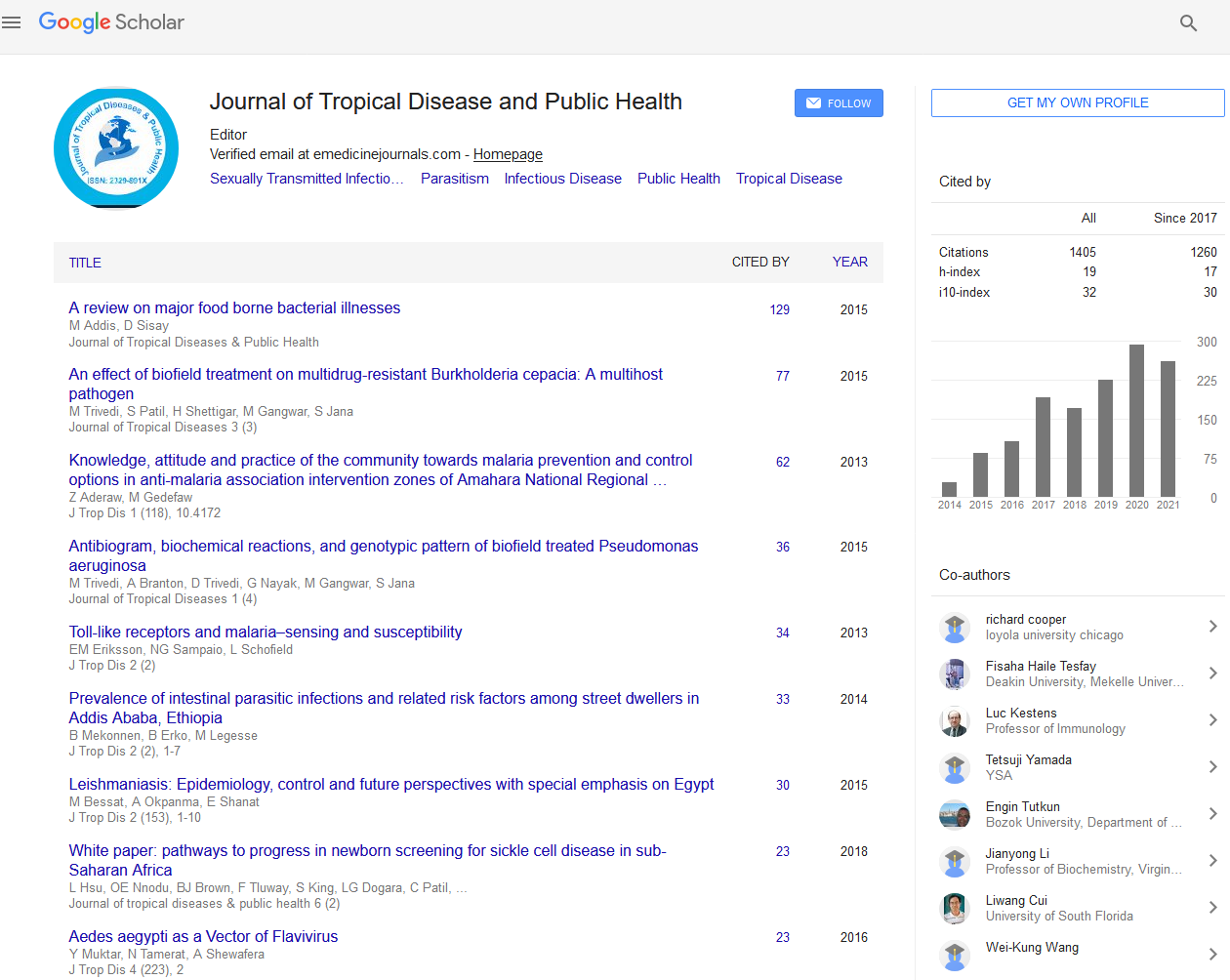Indexed In
- Open J Gate
- Academic Keys
- ResearchBible
- China National Knowledge Infrastructure (CNKI)
- Centre for Agriculture and Biosciences International (CABI)
- RefSeek
- Hamdard University
- EBSCO A-Z
- OCLC- WorldCat
- CABI full text
- Publons
- Geneva Foundation for Medical Education and Research
- Google Scholar
Useful Links
Share This Page
Journal Flyer

Open Access Journals
- Agri and Aquaculture
- Biochemistry
- Bioinformatics & Systems Biology
- Business & Management
- Chemistry
- Clinical Sciences
- Engineering
- Food & Nutrition
- General Science
- Genetics & Molecular Biology
- Immunology & Microbiology
- Medical Sciences
- Neuroscience & Psychology
- Nursing & Health Care
- Pharmaceutical Sciences
Abstract
Preliminary Results Indicate the Anti-Proliferative Effect of HIV-1 Protease Inhibitors on Trypanosoma brucei Cells can be Due to the Non-Specific Targeting of Metallo-and Cysteine-Proteases
Netsanet Worku and Gerd Birkenmeier
Background: Initial studies have confirmed the efficacy of protease inhibitors in the treatment of Trypanosoma cruzi, Plasmodium falciparum, and Leishmania major. However, studies on efficacy and specific protease inhibition of HIV-1 protease inhibitors on Trypanosoma brucei cells remained untouched. The objective of the current study was to determine the efficacy of two HIV-1 protease inhibitors, ritonavir, and saquinavir, in Trypanosoma brucei proliferation and to determine if these HIV-1 protease inhibitors target the activity of the Trypanosoma brucei major proteases.
Methods: Time dependency test at variable increasing concentrations, motile cell counts, alamarBlue® cell proliferation/viability assay and zymography were among the methods applied.
Results: Both ritonavir (IC50=12.23 ± 0.33 µM) and saquinavir (IC50=11.49 ± 0.31 µM) effectively inhibited Trypanosoma brucei cells proliferation. The major proteases identified in these cells were the cysteine (~29 kDa Mr) and metallo- (~66 kDa Mr) proteases. Protein band densitometry results showed a statistically significant (Pvalue< 0.05) inhibition in metallo-and cysteine-proteases’ activity in Trypanosoma brucei cells.
Conclusion: The results suggest that RTV and SQV showed an anti-proliferative effect in Trypanosoma brucei cells possibly due to the non-specific targeting of the cysteine-and metalloprotease activities of the parasite.
Published Date: 2019-02-22; Received Date: 2019-01-30


